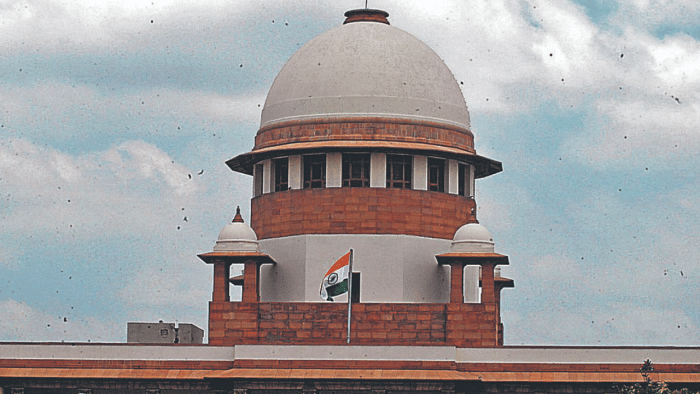
Five years after declaring the practice of triple talaq as unconstitutional, a Supreme Court's Constitution bench on Tuesday issued notice to the Centre and others on a batch of pleas questioning validity of polygamy and nikah halala prevalent among Muslims.
The top court fixed the hearing in the matter after the Dusshera vacations in October.
A five-judge bench of Justices Indira Banerjee, Hemant Gupta, Surya Kant, M M Sundresh, and Sudhanshu Dhulia took up nine petitions challenging these practices.
The petitions were filed by Muslim women and BJP leader and advocate Ashwini Kumar Upadhyay challenging the constitutional validity of the polygamy and nikah halala. These cases were referred to the five-judge bench by a three-judge bench in March 2018.
On Tuesday, the court sought a response from the central government, National Commission for Women, National Commission for Minorities, Law Commission etc.
Upadhyay’s plea said the injury caused to the women as practice of triple talaq, polygamy and nikah halala is violative of Articles 14, 15 and 21 of the Constitution and injurious to public order, morality, and health.
The plea sought a direction to declare Section 2 of the Muslim Personal Law (Shariat) Application Act, 1937, unconstitutional and violative of Articles 14, 15 and 21 of the Constitution, insofar as it seeks to recognise polygamy and nikah halala.
In August 2017, the top court held that Muslim practice of triple talaq is unconstitutional and struck it down by 3:2 majority.
Polygamy allows a Muslim man to have four wives, and once a Muslim woman has been divorced, her husband is not permitted to take her back even if he had pronounced talaq under influence of any intoxicant, unless his wife undergoes nikah halala, which involves her marriage with another man, who subsequently divorces her so that her previous husband can re-marry her.
In 2017 verdict, the apex court had kept open the issue of polygamy and nikah halala, while quashing the practice of triple talaq.
